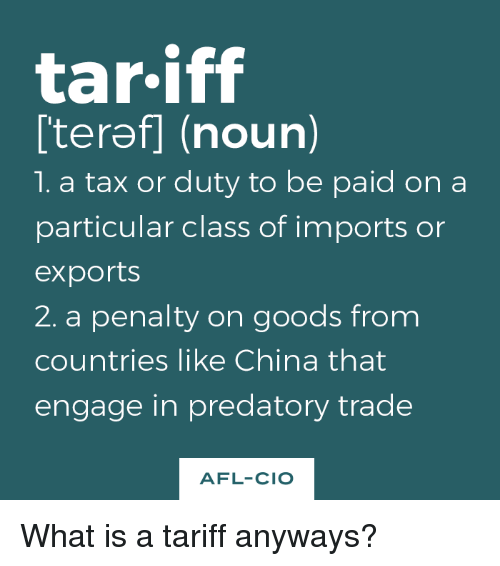
If you read this blog regularly, you already know that the United States has a ginormous, humongous trade deficit with China. The goods trade deficit with China reached $375 billion in 2017. This deficit has cost 3.4 million U.S. jobs between 2001 and 2015. About 2.6 million of those lost jobs were in manufacturing, including more than 1.2 million in computer and electronic manufacturing. You probably also know that the loss of all these jobs pulls down wages, and that bad trade policies lower an average U.S. worker’s pay by $2,000 every year.
The labor movement has been working to fix U.S. trade policy for more than 20 years. After years of having our trade recommendations ignored by both Democratic and Republican presidents and Congresses, President Donald Trump has started to take some of our advice. He announced tariffs on China to deter it from stealing patents and copyrights and pressuring companies to transfer technology and jobs from the United States (many companies are ready to outsource anyway—working people don’t need extra threats from China!). The real test will come in what happens in negotiations with China and with Canada and Mexico over the North American Free Trade Agreement.
We have to hold both Trump and members of Congress in both parties accountable and make sure they actually make real change in the trade rules that will help working people.
Labor has been fighting for stronger trade enforcement for years. So we think these tariffs are a good start, if used strategically. But alone, they aren’t enough to reform and undo decades of bad trade rules. The president can’t fix the trade deficit, create jobs and raise wages if he ignores the rest of our advice.
As AFL-CIO President Richard Trumka has explained:
In isolation, this enforcement effort won’t be enough to fulfill the president’s promise to boost manufacturing, stop outsourcing or raise wages. These actions must be combined with policies that protect workers’ rights and our safety on the job, investments in our communities and working people, smart rules to prevent big banks from crashing our economy again, and renegotiated trade deals—starting with NAFTA—that end special privileges for global companies, protect worker freedoms, and promote a fair and sustainable economy for all of us.
In addition, countries need to work together to rewrite trade rules. But Trump’s trade policies are so far a solo effort. His unilateral approach has led to backlash instead of cooperation from U.S. allies.
We’ve got more advice on how to make trade work. We’ve put forth 17 key recommendations for a better NAFTA and suggested eight ways to make trade enforcement more effective. We’ve supported bills that would better protect our national security from predatory foreign investors and recommended that Congress oppose dumb ideas like making it harder for a president to enforce trade laws.
The AFL-CIO has a positive vision of international trade rules that lift up hardworking families here and across borders. When the United States and neighboring economies grow together, we create more exports and jobs. On the other hand, ignoring the violence, poverty and labor rights abuses in neighbors like Mexico, Guatemala and Honduras is a recipe for more inequality and less union power both there and here.
It all boils down to this: Trade policy is not a question of "free trade" versus "protectionism." Instead, trade rules must promote good family-wage jobs, sustainable growth, vibrant economies, smart natural resource conservation and human rights and dignity globally. We believe these principles will lead to better trade rules that support more jobs and higher wages. Now we just have to convince our elected representatives to take more of our advice.
To help us, text TRADE to 235246.

